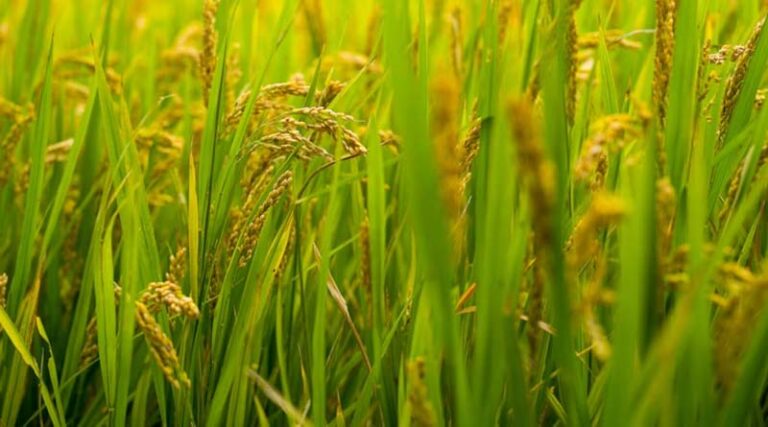
“Farmers Deserve to Decide”: ICAR Hits Back at Allegations on Gene-Edited Rice Trials
ICAR Refutes Allegations of Bias in Evaluation of Gene-Edited Rice Lines Pusa DST-1 and DRR Dhan 100
27 November 2025, New Delhi: India’s apex agricultural research body Indian Council of Agricultural Research (ICAR) has firmly rejected allegations made by ‘The Coalition for a GM-Free India’ regarding the evaluation of two gene-edited rice lines Pusa DST-1 and DRR Dhan 100 (Kamala). They were tested under the All India Coordinated Research Project on Rice (AICRPR) during 2023 and 2024. ICAR stated that the claims of bias, selective data use and procedural lapses are “incorrect, unscientific and misleading.”
How AICRPR Trials Work: A Blind, Multi-Location System in Place Since 1965
ICAR emphasized that the AICRPR system, in operation for nearly six decades, is one of the most rigorous and transparent crop-testing mechanisms in the world. Every year, breeders across India nominate more than 1,200 rice lines for evaluation. Once submitted, all entries are blind-coded and dispatched to around 100 test sites across seven agro-ecological zones.
Each breeding line is tested for 2–3 years, and only locations where trials are conducted properly, verified by expert monitoring teams and where data is statistically valid, are used for varietal assessment. Nearly every major rice variety currently grown in India has passed through this same evaluation system.
The two gene-edited lines in question were assessed in Near-Isogenic Line (NIL) and Gene-Edited Line (GEL) trials. These trials compare improved lines with their original parent varieties in what are called Target Performance Environments (TPEs)—the regions where the parent varieties were originally released and widely adopted. ICAR clarified that it is both standard and scientifically essential to assess NILs or GELs primarily within TPEs instead of averaging data across the entire country.
Performance of Pusa DST-1: Superior Under Stress, Equivalent Under Normal Conditions
Pusa DST-1, derived from the popular southern rice variety MTU1010, was developed for tolerance to salinity and alkalinity. ICAR noted that under normal field conditions, the gene-edited line was expected to perform on par with its parent, which it consistently did. Under stress conditions in Zone VII, its designated TPE, the line demonstrated significant yield superiority, particularly in alkaline, inland saline and coastal saline environments.
For example, under alkaline conditions in the southern TPE locations, Pusa DST-1 recorded an average yield of 3731 kg/ha compared with 3254 kg/ha for MTU1010. Under inland and coastal salinity, it also showed statistically significant advantages. ICAR stressed that these results, not countrywide averages, form the basis for varietal identification.
The organization said the Coalition’s analysis ignored trial protocols and mixed data across unsuitable regions, leading to misleading conclusions.
Performance of DRR Dhan 100 (Kamala): Higher Yield and Earlier Maturity Than Samba Mahsuri
DRR Dhan 100 (Kamala), a gene-edited version of Samba Mahsuri, underwent evaluation across Kharif 2023, Rabi 2023-24, and Kharif 2024. ICAR highlighted that across these three seasons, the variety consistently outperformed its parent in Zone VII, its main TPE.
In Kharif 2023, Kamala recorded a mean yield of 5270 kg/ha, compared with 4829 kg/ha for Samba Mahsuri. It also matured around 12 days earlier, a significant advantage for farmers. The performance was similarly strong in Rabi 2023-24, where the gene-edited line yielded 21.95% more than its parent and showed earlier flowering.
ICAR noted that the Coalition selectively ignored Rabi 2023-24 results and misrepresented location-wise data. The agency reiterated that locations where stress levels were inadequate or trial protocols were compromised were not included in the analysis, in line with AICRPR norms.
Claims of Selective Data Use and Inconsistencies Rejected
ICAR categorically rejected claims that it selectively highlighted favourable locations. The agency clarified that NIL and GEL trials follow strict guidelines that emphasize performance in TPEs rather than aggregate national data. Any attempt to average or compare gene-edited lines across regions where the parent variety is not adapted is “scientifically invalid,” ICAR said.
The body also dismissed allegations that grain quality or cooking quality differed between the gene-edited lines and their parent varieties. According to AICRPR assessments, all measured quality parameters remained within acceptable statistical ranges.
Transparency, Public Access and Farmer Participation
ICAR emphasized that all AICRPR trial data has been made publicly available, reflecting its commitment to transparency. Over the last three years, more than 5,000 farmers, policymakers, scientists, and industry representatives have visited field trials at ICAR-IARI (New Delhi) and ICAR-IIRR (Hyderabad) to witness the performance of the two gene-edited varieties firsthand.
ICAR encouraged farmers, researchers and stakeholders to visit the trial fields to form their own independent assessments of the varieties’ performance.
“Farmers Deserve the Choice”
Concluding its response, ICAR said that preventing these varieties from reaching farmers would amount to denying them an opportunity to evaluate and adopt new technologies based on real-world performance. The organisation asserted that the allegations by the Coalition stem from opposition to gene-editing technology itself and not from any flaw in the scientific evaluation process.
ICAR maintained that the evaluation of Pusa DST-1 and DRR Dhan 100 was carried out strictly according to established national procedures that have guided the release of India’s most successful rice varieties for decades.
Also Read: CNH Industrial Finance Europe S.A. 1.875% Notes Due 2026 Notice Of Redemption
📢 If You’re in Agriculture, Make Sure the Right People Hear Your Story.
From product launches to strategic announcements, Global Agriculture offers unmatched visibility across international agri-business markets. Connect with us at pr@global-agriculture.com to explore editorial and advertising opportunities that reach the right audience, worldwide.






